detail profile yacef sa c3 a2di
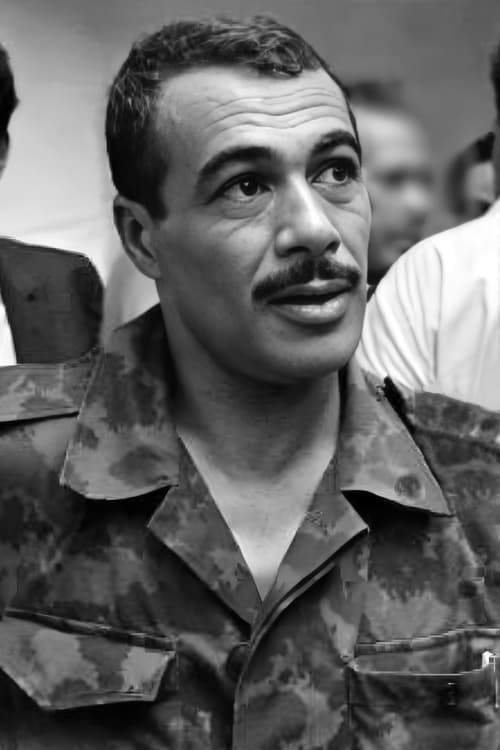
Yacef Saâdi
Saadi Yacef
atau dikenal sebagai
Riwayat Hidup
Yacef Saâdi (20 January 1928 – 10 September 2021) was an Algerian independence fighter, serving as a leader of the National Liberation Front during his country's war of independence.
After the Algerian War, Yacef helped produce Italian filmmaker Gillo Pontecorvo's film The Battle of Algiers (1966), based on Souvenirs de la Bataille d'Alger.
Yacef played a character modeled on his own experiences (named as Djafar) in the battle.
He began his professional life as a baker's apprentice.
In 1945 he joined the Algerian People's Party (PPA) which was succeeded by the Movement for the Triumph of Democratic Liberties (MTLD) where he was active in the armed wing, the Special Organization between 1947 and 1949.
He went to France after the dismantling of the OS and only returned to Algeria in 1952 where he resumed his work as a baker in the Casbah.
In 1955, he joined the ranks of the FLN at the start of the war of independence then left for Switzerland for a liaison mission with Ben Bella.
The Swiss authorities expelled him and he was arrested by the French police in Orly who transferred him to Algiers and imprisoned him.
He was released in September 1955 on the condition that he inform the DST about the activities of the FLN in Algiers.
He went underground and became the right-hand man of the leader of the FLN for the military zone of Algiers, Larbi Ben Mhidi.
He became the FLN military leader of the autonomous zone of Algiers in May 1956 and replaced him in March 1957 after the death of Ben Mhidi, assassinated by General Aussaresses.
On September 24, 1957, he was captured by French paratroopers and sentenced to death but finally released after the Evian Accords of March 18, 1962.
Saâdi was pardoned by General de Gaulle, along with all those condemned to death in Algeria, in January 1959.
He then benefited from amnesty in 1962.
Close to Ben Bella, he founded a film production company, Casbah Films, which he financed with Algerian and Yugoslav capital.
In 1962, he published Memories of the Battle of Algiers, his memoirs of the battle which he wrote during his incarceration.
In July 1963, Yacef Saâdi was appointed by Ahmed Ben Bella president of the National Center for Friendship with Peoples (CNAP), intended to publicize abroad the achievements of Algerian socialism.
In 1966, he co-produced with the Italian director Gillo Pontecorvo the famous film “The Battle of Algiers” in which he played himself.
He was appointed president of the Algerian club USM Alger for three years, 1972-1975.
On January 6, 2001, Saâdi was appointed senator by President Bouteflika out of the contingent of 29 appointments reserved for him.
His mandate was not renewed by the President of the Republic in January 2016.
According to the Algerian daily L'Expression, Yacef Saâdi was approached, in 2003, by the FBI and the CIA with the aim of drawing inspiration from his guerrilla warfare.
urban from the time of the prestigious battle of Algiers to fight the Iraqi resistance.
He refuses to collaborate.
Info Pribadi
Peran Yang Di Mainkan Yacef Saâdi
 Cheikh Djema looks back on the...
Cheikh Djema looks back on the...La Bataille d'Alger, l'empreinte 2018
Cheikh Djemaï looks back on the genesis of Gillo Pontecorvo’s feature film, The Battle of Algiers (1965). Through archive images, extracts from the film and interviews with personalities, the filmmaker retraces the journey of a major work - from the events of the Algiers Casbah (1956-1957) to the presentation of the Lion of 'Or causing the anger of the French delegation in Venice - which left its mark as much in the history of cinema as in that of Algeria.
 More than fifty years after the...
More than fifty years after the...L'Histoire Du Film "La Bataille D'Alger" 2018
More than fifty years after the release of the film “The Battle of Algiers” in theaters in June 1966, director Salim Aggar found, after a search which lasted more than a year and a half, the actors, extras and technicians who worked on the film directed by Gillo Pentecorvo and produced by Yacef Saadi. In this documentary full of anecdotes and stories about the filming of the film, the director found the actress who played the role of Hassiba Ben Bouali, the young 17-year-old actress who played Bouhamidi's bride but especially certain figures important parts of the film who were barely 10 years old at the time of filming and who no one will recognize today. Beyond the important historical aspect of the film, the documentary focused mainly on the social, cinematographic and cultural aspect of the film and its impact on a generation which had just regained independence.
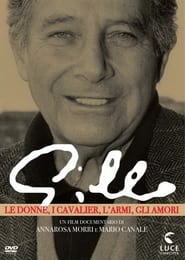 Pontecorvo is one of those Italian...
Pontecorvo is one of those Italian...Gillo of Ladies and Knights, of Loves and Arms 2007
Pontecorvo is one of those Italian filmmakers marked for life by neorealism. He declares that he decided to do cinema after leaving a screening of "Paisa" by Roberto Rossellini. The future filmmaker was then in Paris, a year after a war during which he became one of the main figures of the Italian resistance and one of the founders of the Youth Front. Leaving his status as a war hero behind him, Pontecorvo made his directorial debut with "Giovanna", a short film heralding a cinematic career dedicated to what he himself calls the "dictatorship of truth."
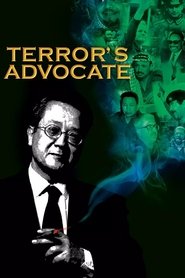 A documentary on Jacques Vergs the...
A documentary on Jacques Vergs the...Terror's Advocate 2007
A documentary on Jacques Vergès, the controversial lawyer and former Free French Forces guerrilla, exploring how Vergès assisted, from the 1960s onwards, anti-imperialist terrorist cells operating in Africa, Europe, and the Middle East. Participants interviewed include Algerian nationalists Yacef Saadi, Zohra Drif, Djamila Bouhired and Abderrahmane Benhamida, Khmer Rouge members Nuon Chea and Khieu Samphan, once far-left activists Hans-Joachim Klein and Magdalena Kopp, terrorist Carlos the Jackal, lawyer Isabelle Coutant-Peyre, neo-Nazi Ahmed Huber, Palestinian politician Bassam Abu Sharif, Lebanese politician Karim Pakradouni, political cartoonist Siné, former spy Claude Moniquet, novelist and ghostwriter Lionel Duroy, and investigative journalist Oliver Schröm.
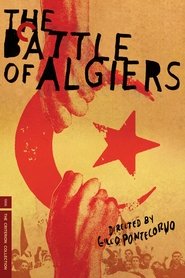 To commemorate the fiftieth anniversary of...
To commemorate the fiftieth anniversary of...Marxist Poetry: The Making of The Battle of Algiers 2004
To commemorate the fiftieth anniversary of THE BATTLE OF ALGIERS, we revisited our edit of the film and interviews with director Gillo Pontecorvo and producer Saadi Yacef, who discuss the process of representing Algeria's struggle for independence and the challenges of presenting a balanced view of the conflict.
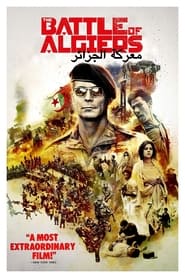 Tracing the struggle of the Algerian...
Tracing the struggle of the Algerian...The Battle of Algiers 1966
Tracing the struggle of the Algerian Front de Liberation Nationale to gain freedom from French colonial rule as seen through the eyes of Ali from his start as a petty thief to his rise to prominence in the organisation and capture by the French in 1957. The film traces the rebels' struggle and the increasingly extreme measures taken by the French government to quell the revolt.
 In 1964 Algeria just two years after...
In 1964 Algeria just two years after...Les Mains Libres 1965
In 1964, Algeria, just two years after the end of the war of independence, found itself catapulted into new contradictions, a still rural territory which responded to the modernity brought by the revolution. Filmed during the winter of 1964-1965 by the young director Ennio Lorenzini, it is the first international Algerian production which paints a rare portrait in color of a multifaceted nation, far from the simplistic vision created by the press and the French army. Produced by Casbah Film, Les Mains Libres (initially titled Tronc De Figuier) bears witness to the stigmata of colonization and the future of free Algeria throughout the Algerian territory and reveals the richness of its landscapes and the diversity of its traditions . The documentary, using the aesthetics of militant cinema of the time, is made up of four scenes: Sea and Desert, The Struggle, The Earth, Freedom.
